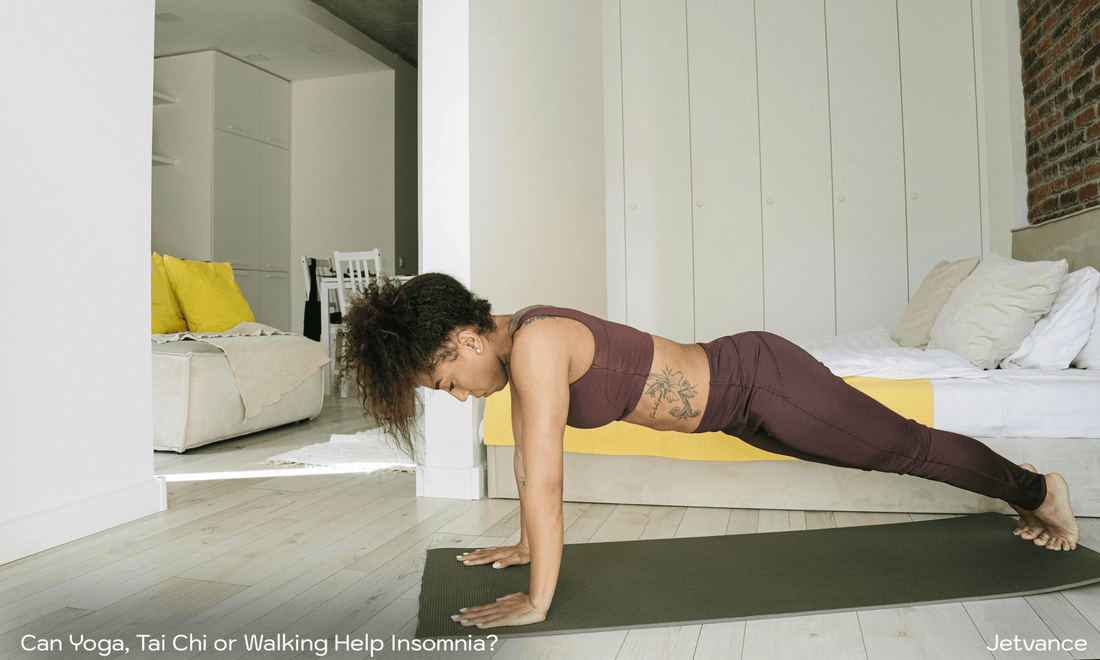
Can Yoga, Tai Chi or Walking Help Insomnia?
Share
Struggling to sleep despite good habits? It might be time to move—gently. Emerging research now supports the idea that gentle exercise like yoga, Tai Chi, or even brisk walking can significantly improve sleep, especially for people dealing with insomnia.
A 2024 BMJ meta-analysis reviewing over 22 studies found that low-intensity movement improved sleep quality, extended sleep duration, and decreased night-time awakenings. What’s powerful is that these benefits were comparable to cognitive behavioral therapy (CBT)—the gold standard for treating insomnia.
Why do these activities work?
- They activate the parasympathetic nervous system, which calms the body and mind.
- They reduce cortisol (stress hormone) levels.
- The focus on breath and mindfulness helps “unwind” racing thoughts that sabotage sleep.
Best practices to get started:
- Yoga: Try restorative or yin yoga 20–30 minutes before bed. Poses like legs-up-the-wall, child’s pose, or gentle spinal twists are ideal.
- Tai Chi: Evening sessions improve balance, calmness, and reduce anxiety.
- Walking: Even a 20-minute walk after dinner helps signal your circadian rhythm to prepare for rest.
Sample weekly plan:
- Mon/Wed/Fri: 30-minute post-dinner walk
- Tue/Thu: Bedtime yoga
- Saturday: Tai Chi in the morning + 10-minute guided meditation at night
Conclusion:
These forms of movement are not only accessible and low-impact—they’re also scientifically supported. If traditional sleep strategies haven’t worked, integrating light movement could be the shift your body needs to unlock more restful, consistent sleep.

